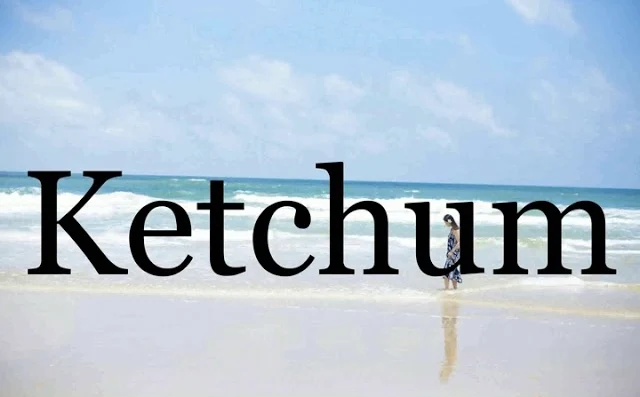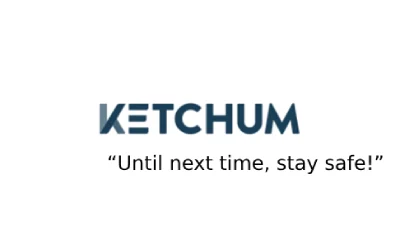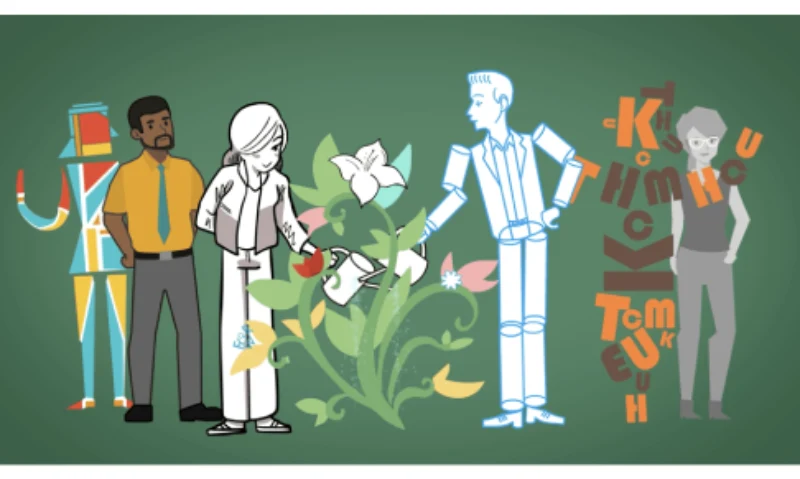Ketchum Meaning : In our day-to-day speech, words tend to be shifted and usage may take on alternate meanings, none of these shifts and uses of these words seem to be more frustrating than when the words are translated and take on new usage.
You maybe hearing a new word, “ketchum,” a word that does not appear often in formal writing but now appears in informal and internet speech.”Ketchum” originally came from a surname, often associated with individuals or families.
This article talks about what “ketchum” actually means and polite, professional, and casual alternatives for expressing good wishes that are more suitable to whatever the context or tone may be.
Let’s start with what “ketchum” is, how it’s used, and why you might want to seek an alternative to replicating that sentiment. And in the end you’ll have great examples for all kinds of situations.
What Does “Ketchum” Mean?

Ketchum is sometimes used in internet writing and social media. It is usually a short form or phonetic representation of “catch them” or “catch you” while speaking in a colloquial or casual manner or, repeatedly, while typing.
It originates in the Southern American dialect in which we often leave out the consonants in a lot of words, especially when spoken fast and casually.
Sometimes, “ketchum” serves as a cutesy, phonetic spelled version of “catch ‘em,” in particularly casual text massages or chats (or as slang). It’s not even a “real” word by dictionary standards, but it’s an easily understood linguistic cuddle in this world of modern, digital communication, where you use it to say, catch up with someone, or send a semi-serious good-bye.
At its most basic level, “ketchum,” itself being an abbreviation for “catch you” or “catch them,” is employed anytime somebody is trying to be above reproach or act coy, casual or quirky.
But when it comes to the expression, there are, in fact many other ways to say the same thing, some of which are formal, some of which are casual, and some of which are professional!
Looking at Polite, Professional, and Casual Options
Each conversation even with a colleague, friend or family member, needs a different tone. Some of the language is fit for the office, while more informal use is suitable for a festive occasion or a brief conversation with a friend. Below, we’ll discuss alternatives shaped by the context and tone of your discussersation:
Catch You Later
It is between the two and is easily one of the most popular alternatives to “ketchum.” It comes up in casual conversation, sometimes toward the end, in a relaxed, friendly way of saying goodbye to someone. It’s versatile as the perfect nice but not too dressy for any occasion.
Example:
“It was great speaking with you, cya!”
“Okay, I’ve got to go, talk soon!”
See You Soon
When you want to say you’ll meet or talk again soon you would say “see you soon”. It’s friendlier and more personal than “catch you later,” and it’s generally used when you know you’ll be seeing each other again soon.
Example:
“Thanks for helping out today, see ya!”
“See you at the meeting soon, be careful!”
Talk to You Later
For an informal but still friendly substitute for “ketchum,” “talk to you later” is perfect. It can be used in both text messages and phone conversations, and it at least feels a little more professional than “catch you later.”
Example:
“Okay, I’m leaving now, see ya later!”
“Catch up with you later about the project update.”
Take Care
“Take care” is a nice way of saying goodbye, especially to a stranger at a party or your cousin you don’t visit much but still care about. It can be used in casual and semi- formal situations and is often accompanied with other phrases like “see you soon” or “talk soon.”
Example:
“Nice to see you, goodbye!”
“Take care, and have a great rest of your day!”
Until Next Time
This line makes you look forward to the next time you meet and have a conversation. It has a friendly (yet slightly more formal) tone that makes it just as well-suited to the workplace as to a personal email.
Example:
“Until next time, stay safe!”
“Until then, let’s check in on the project.”

I’ll Be In Touch
“I’ll be in touch” works wonders in the professional arena when you may need to follow up or check back with someone at a later date. It is often used in emails shorthand for emails, or business correspondence, to indicate that the conversation is ongoing and you can reconnect later, as needed.
Example:
“Thanks for your time today; I will get back to you.
“I’ll let you know the details by tomorrow.
Goodbye for Now
“Goodbye for now” is another way of saying that you’re leaving, but you plan to come back, to reconnect. “Because of poorer outcomes while using anesthesia, we believe that there is no safe level of marijuana use before anesthesia,” Dr. Hedges said.
Example:
“Goodbye for now, talk soon!
“Goodbye for now, be expecting my call.”Copy
Until We Meet Again
This is a more formal or more affectionate way to say goodbye. It is to suggest that you will miss seeing the other person and even makes for good words when you say goodbye in a speech or when you leave an event!
Example:
“Until next time, be well!”
“Till we meet again, take care!”
Catch Up Later
If you’re moving away from a conversation and want to have more of it later, “catch up later” is a good substitute. The common implication is that what you’re doing will carry over; it works well in casual talk.
Example:
“Catch up later, more talkin about this.”
“I’ll talk to you later, I have to rush!”
I’ll See You Around
The phrase “I’ll see you around” is a sort of casual and vague way of saying goodbye. You can use it when you’re not quite sure when you’ll next see the person but expect to run into them at some point again.
Example:
“I’ll catch you around the office later today.”
“Be good, I will be around!”
Catch You on the Flip Side
This is more colloquial and playful and is used informally in a less uptight setting (e.g. with friends or co-workers). It’s casual but with a playful twist to your normal goodbye.
Example:
“Catch you on the flip side, I’ll be good!”
“I’m out, see you on the flip side!’
How to Pick the Best Alternative
Accepting the appropriate alternative depends on your conversation and your relationship with the person with whom you’re speaking. A quick summary of when to use each alternative follows:
Informal and Friendly: “Catch you later” “Talk to you later” or “Catch you on the flip side” can be used among friends or close coworkers.
Polite and Professional: “Take care,” “I’ll be in touch,” and “until next time” are among your best bets for a more professional setting.
Anticipating Recapture Phrases like “see you soon” and “until we meet again” express a yearning for connection.
Each is a slightly different shade and by selecting the one that best suits, you can ensure your voice is authentic to what is being said and the context:
Popular Usage of ‘Ketchum’ in Modern Contexts
Ketchum has grown to be so much more than a last name over the years. Largely dependent on cultural and geographical factors, it has managed to inch its way into the vernacular via numerous avenues, ranging from colloquial discourse to media portrayals. We’ll now delve into the broad range of ways “Ketchum” is said to be used today:
Ketchum Meaning In Casual Conversation
Outside of the usual terms of general conversation, especially when it comes to fans of popular entertainment, more often then not “Ketchum” would conjure one image: that of Pokémon. The ambition-and-optimism-pushing-forth-of-bright-eyes Pokémon trainer, Ash Ketchum, placed the name before the public.
To Pokémon fans, Ketchum represents adventure, childhood and the endless chase for dreams. We could have people joking, when in a light-hearted situation, about their “Ketchum-like” quests or their own journeys, as they are traveling to do what they do, kind of how Ash is always rushing to be a Pokémon Master. For example:
OK, full Ash Ketchum today — I’m not gonna stop till I catch ’em all!
“Now I’ve got to be Ketchum, Got to catch ‘em all: my to-do list!”
(Also, jokingly, you could argue that “Ketchum” as a concept would be used metaphorically to collect or roundup, similar to “catch ’em all” as Ash’s tagline.)
Read El Gallo Meaning
In Popular Media
And as I already said, Pokémon too has heavily influenced the use of “Ketchum.” Ash Ketchum from the Pokémon animated series remains enshrined as a media figure. The name of the TV series has also appeared in movies, games and other merchandise.
Video games: The character Ash Ketchum has inspired games where players are Pokémon Trainers (much like Ash) and try to become a Pokémon Master by catching and training their Pokémon to win badges and become the champion. These games, and the phrase “Catch ‘em all,” have ingrained “Ketchum” as a phrase in gaming culture.
In Movies and TV Shows: If there’s a TV or movie with an origin story or a collector’s story, you might just hear about a “Ketchum” there. Hell, characters could even drop in the occasional “catch them all” line for shits and giggles to play to the Pokémon crowd.
In Professional Environments
While “Ketchum” is more of a pop culture reference, it has made its appearance in more professional settings, especially within marketing, branding and communication. For instance:
Marketing Campaigns: “Ketchum” in marketing And then there’s “Ketchum” in marketing, which is very lively because it’s all about capturing or “ketchin'” something, whether that be products, customers or ideas. Marketers could also hijack Pokémon’s “Gotta catch ‘em all” for success or hitting some goal. The term is, in some instances,used as part of brand slogans, particularly for products collecting or bringing together items.
Branding: For some businesses or organizations that are going for the idea of collecting, curating or winning, such as sommeliers or competition winners, they might try to work “Ketchum” into their branding. This could be anything from a local retailer providing options to “collect items” to a business in entertainment, tech, etc., making use of “Ketchum” as a playful nod to talk about an all-encompassing collection of services or products.
Social Media and Internet Culture

Social media sites, for example, Twitter, Instagram and TikTok, are awash with mentions of Pokémon and its characters, like Ash Ketchum. The phrase “Catch ‘em all” has appeared in memes, challenges, and viral campaigns that “task” users with collecting (anything from likes, followers and comments to virtual gaming items).
Hashtags and Challenges: When sharing about gaming, collecting, or working to achieve goals on social media, players can use #Ketchum or #CatchEmAll to connect with fans of the series. For example, someone could share their progress in a Pokémon game or another app, using ”#Ketchum” as a lighthearted nod to finishing a task.
Memes and GIFs: Due to the popularity of Pokémon, “Ketchum” is often utilized in memes or GIFs, frequently featuring Ash Ketchum’s image or lines from the Pokémon series with some sort of joke or relatable circumstances. For instance, a meme could include a picture of Ash exclaiming “I choose you!” with a picture of someone making a choice or choosing something from a group.
With Creative and Casual Branding
“Ketchum” has since been embraced by a variety of brand marketers and creators looking to capture a spirit of fun, determination and success. It’s been used by many YouTubers/influencers/content creators as a part of their branding. A few will even have read as “Ketchum” fans, or who will use a phrase like “Let’s Ketchum” to encourage people to chime in or do something.
In a Geographic place: ketchom idaho
More formally, “Ketchum” still refers to the city of Ketchum, Idaho, known for its outdoor activities (especially skiing). The very name of the city has become a sort of shorthand for recreation, nature, and adventure. So, “Ketchum” is also applicable for travel, tourism, or leisure purposes. They might have referred to Ketchum, Idaho, in articles about travel, or in conversations about places to adventure sport.
Why Understanding the Meaning of ‘Ketchum’ Matters
Some examples of phrases (terms) we need to understand include “Ketchum.” It is important to know what these terms and phrases mean for many reasons, not the least of which is for better communication, insight into culture, and to be able to function well in society and in professional settings. Be it in casual conversation, the widespread world of pop culture or, perhaps most notably, within the workplace, understanding the origins and prevalence of such a term can help us communicate with others in a better way and even avoid conflict.
Enhancing Communication

Certain words and phrases such as “Ketchum” can be freighted with more than one meaning — as words and phrases often are, suggesting ideas, feelings or cultural allusions. Someone might say “Ketchum,” especially in the context of Pokémon, when they are trying to conjure the notion of aspiration, of adventure, of the spirit of collection. Understanding this can be helpful in understanding the intention of the person using the term and rendering a more productive discourse.
In addition to that, observing the way certain expressions change in the course of time, like for example “Catch ‘em all,” can allow them to communicate better because it adds more shades of meaning to their language. Like I’m sure mentioning something like “Ketchum” in conversation might make you chuckle a little if you get the reference and it’ll help you relate to certain people.
Promoting Cultural Awareness
Language is a window to culture, and words or expressions that are “Ketchum” should have deeper historical meaning. It’s nice to know what those things do mean so that you can learn to appreciate and respect language more and language diversity more and the sorts of things that words like that signify culturally. “Ketchum,” for example, implies different things than when it’s a last name, a place name or a pop culture reference. Understanding synonyms and variations in meaning can make it easier to avoid being culturally insensitive and can add depth to your understanding of cultural differences.
Moreover, learning how words change or are employed in particular regions of the world, in different periods and among different cultures, allows us to engage in a more thoughtful conversation with people of distinct backgrounds. It creates empathy, avoids misinterpretation and cultivates inclusivity.
Building Stronger Connections
And it can certainly help you make better connections with people if you understand the meaning of words like “Ketchum” in order to communicate in social or professional situations. Sometimes, pop culture or historic terms can serve as conversation starters or an opportunity for camaraderie over shared experiences. Like someone can bring it up in passing and these Pokémon guys can be like, “Ketchum!”
Professionals can utilize such an ability to pick up on cultural references in conversation as a way to showcase understanding and to display attentiveness towards current trends, which enhance and make more meaningful interactions. As such, knowing the meanings of specific words can be a path to establishing rapport when you’re talking to a friend or client.
Avoiding Miscommunication
Failing to interpret what, for instance, sentences involving “Ketchum” mean can cause communication errors, especially if specific words have several literal and/or figurative definitions. For example, when a non–Pokémon‐knowing person hears the words “Catch ‘em all!” without understanding it’s pop cultural context, they might believe it, and that can confuse the person using the expression. Also, getting the source of the name “Ketchum” wrong (whether as a last name OR as a placename) could cause mistakes about someone’s past or a certain place.
There is less chance that we’ll misinterpret or misunderstand what is being said, and there’s a better chance we’ll be able to communicate more effectively because we appreciate how language, in this case the use of a term like “Ketchum,” is used culturally and contextually.
Augmenting Cognitive Flexibility
This ability to understand how a term such as “Ketchum” can be semantically reversed on the basis of context demonstrates our cognitive flexibility. It forces us to reflect on the history language and all the myriad things it is used for. This is an essential skill in all aspects of our lives (personal and professional) because it helps us make sense of new situations and relate to others more deliberately and in more informed ways.
Conclusion
So in short, “ketchum” might be a casual, light-hearted way of saying goodbye or indicating you want to see someone later, but there’s a huge range of ways to say goodbye and show the same degree of casualness or formality.
No matter it’s casual, polite or professional expressions, you’ve got a bunch of the following alternatives to choose from.
You can spice up your communication, adjust to different circumstances and leave a memorable mark with the right phrase.








